How to craft weapons and potions in Baldur's Gate 3
How to make potions, weapons, armor and more in BG3, and what the limitations are.
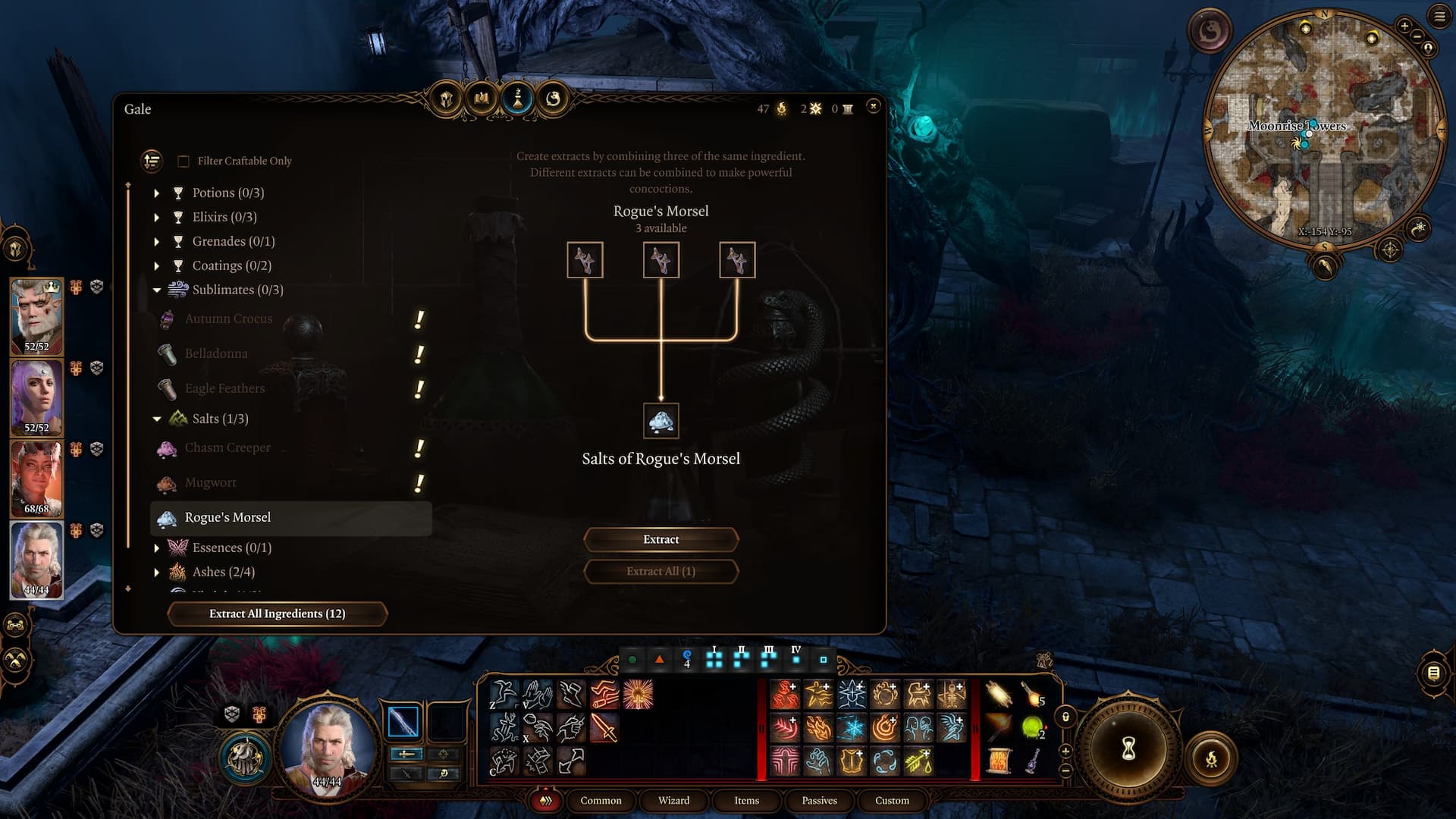
The Baldur’s Gate 3 crafting and alchemy systems are worth learning as you can use them to make weapons, potions, and more. Otherwise, crafting is fairly limited in scope – you’re not going to be knocking together player housing anytime soon, but alchemy is more in-depth, letting the player make various concoctions that can have a profound impact on their game.
Knowing how to make use of these systems will be a big help throughout Baldur's Gate 3, particularly its tougher encounters, and we’ve explained all the key information that you need to know to do just that. Aspiring alchemists, blacksmiths, and general mixologists, take note!
How does crafting and alchemy work in Baldur's Gate 3?
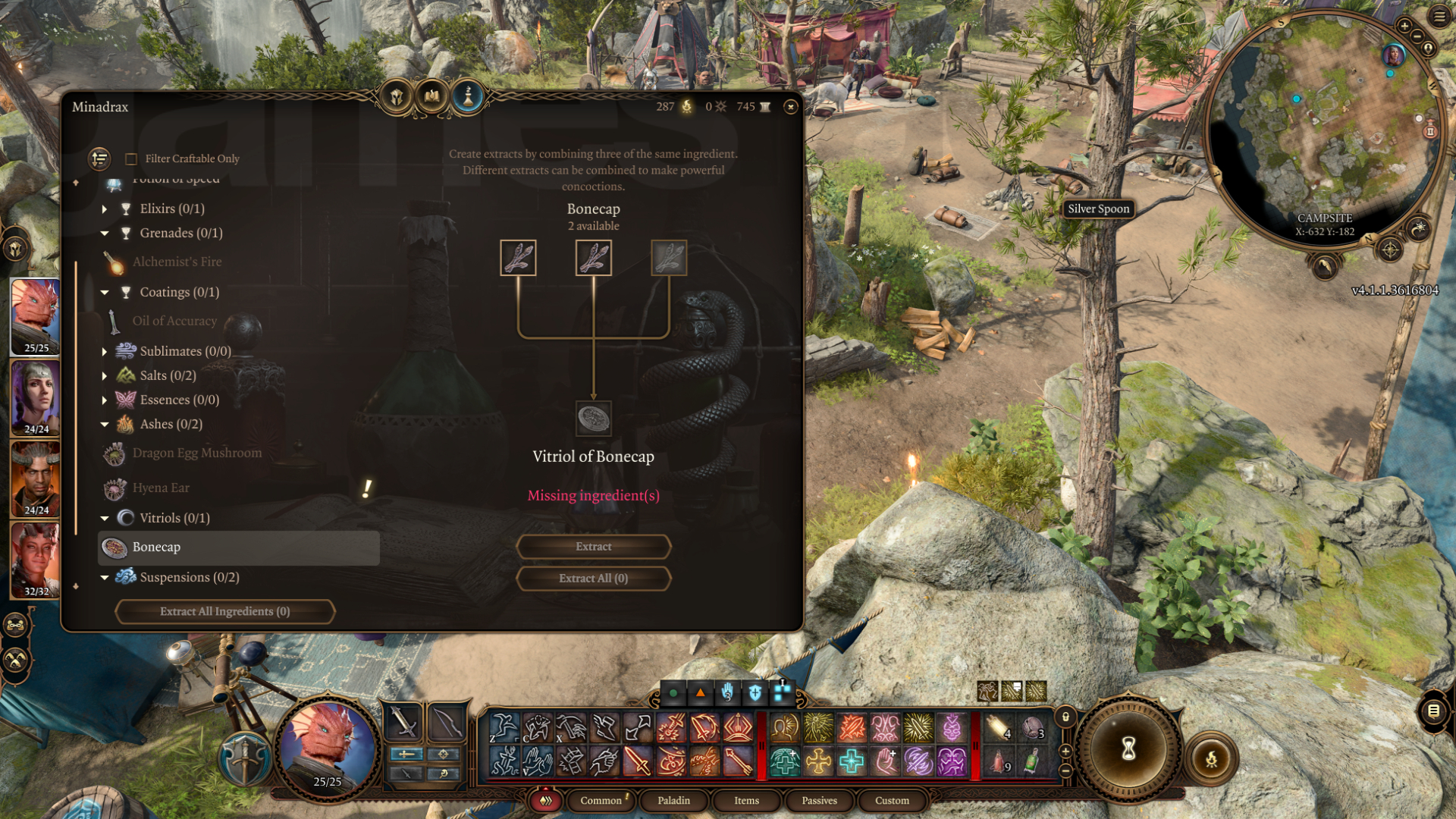
Alchemy and crafting in Baldur's Gate 3 are separate systems and fairly different from each other. If you want to create new items, you basically have three options:
- Crafting: Using specific items in certain forges to create set weapons, armor and equipment.
- Alchemy: Creating consumables and new items by combining ingredients in the alchemy interface.
- Combination: Highly context specific process by which items are combined in the player's inventory, such as using dye on armor.
We'll go through each of them below, and what you need to know about them.
Crafting weapons and armor
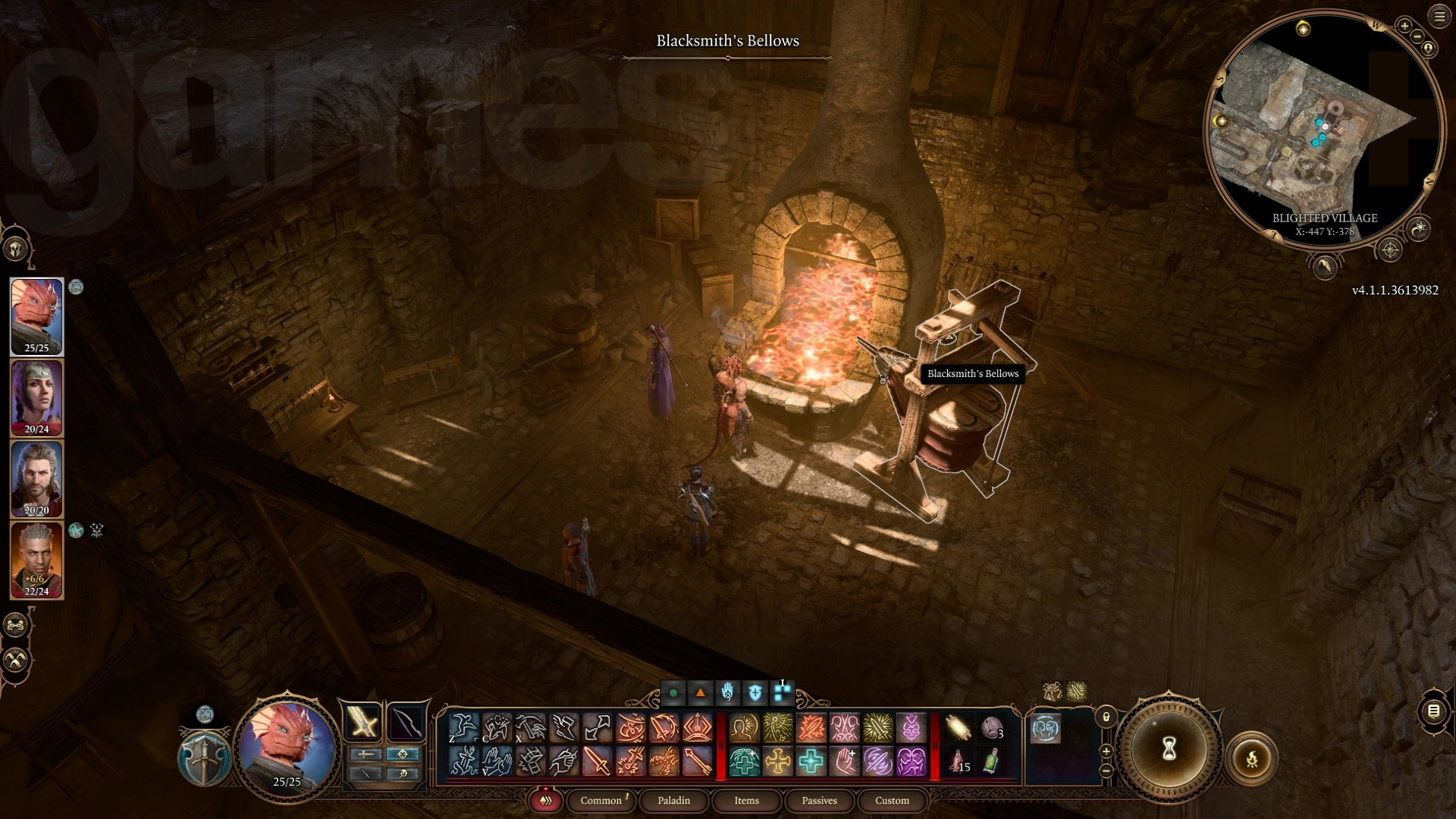
Crafting in Baldur's Gate 3 isn't really a system like it is in Skyrim. Instead, it's mainly tied to quests where the player usually finds a rare item and brings it to a specific forge to complete a set recipe. For example, the Grymforge in the Baldur's Gate 3 Underdark region requires you to find moulds and raw ore for any Adamantite items you want to forge, and the forge in the Blighted Village requires Sussur Bark.
Sadly, that means you can't make whatever Baldur's Gate 3 weapons you want in these places - there'll likely be a few set options that you pick from. If you want a specific weapon, your best bet is to search among traders (or go monster killing until you find it).
Alchemy and potion making
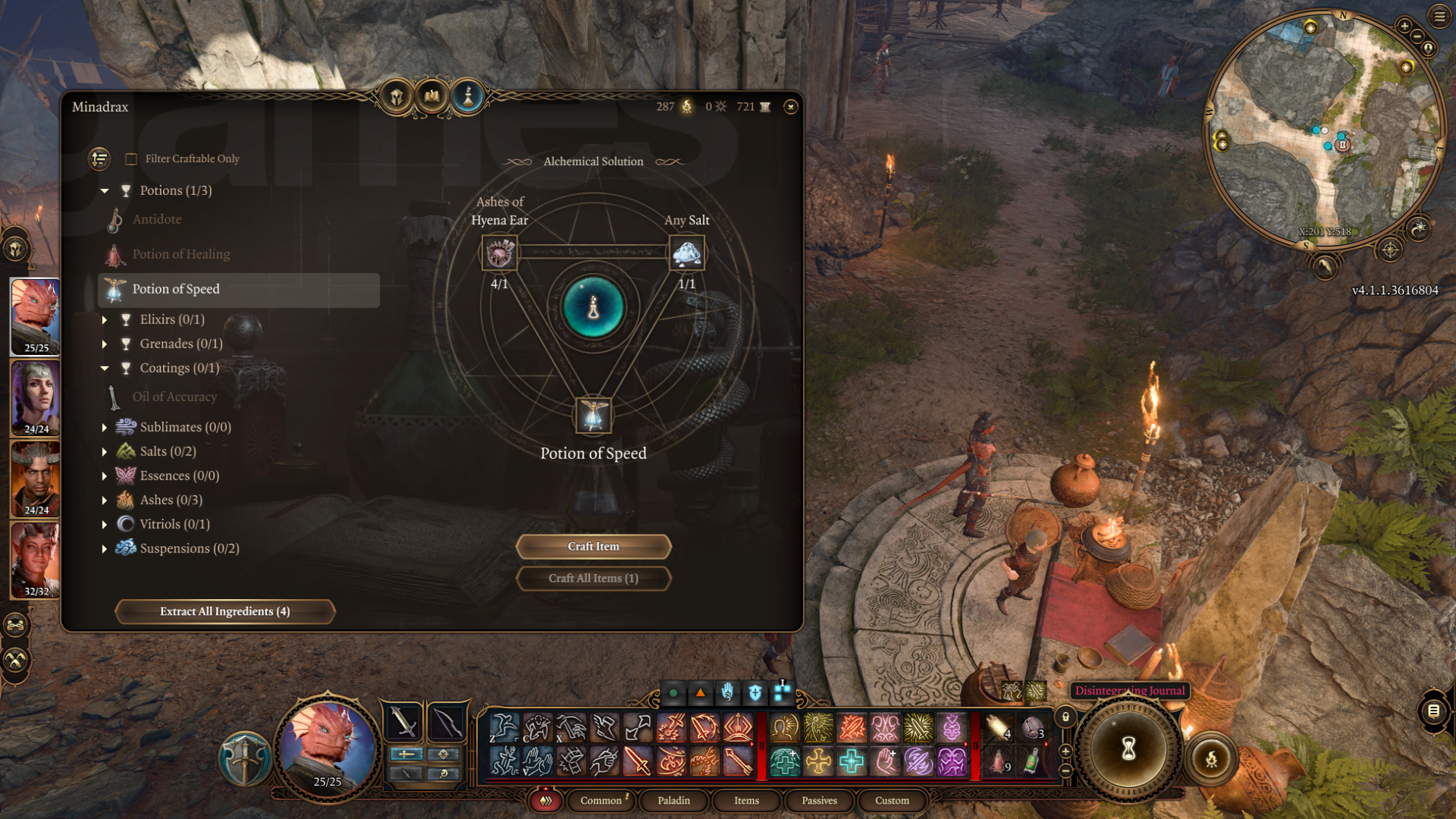
Alchemy in Baldur's Gate 3, on the other hand, is a much more versatile system. Players can find various organic ingredients as they explore, and use them when out of combat in the Alchemy interface, accessed by pressing H.
Weekly digests, tales from the communities you love, and more
From there, players will see all the recipes they've learned (recipes can be obtained from books or notes found across the game). To make a potion or other item, players will usually first have to create a specific "extract", done by destroying 3 of the same item. Those extracts are then used to create the various alchemical consumables, which include potions, explosives, elixirs and weapon coatings.
Combining items and dyeing gear
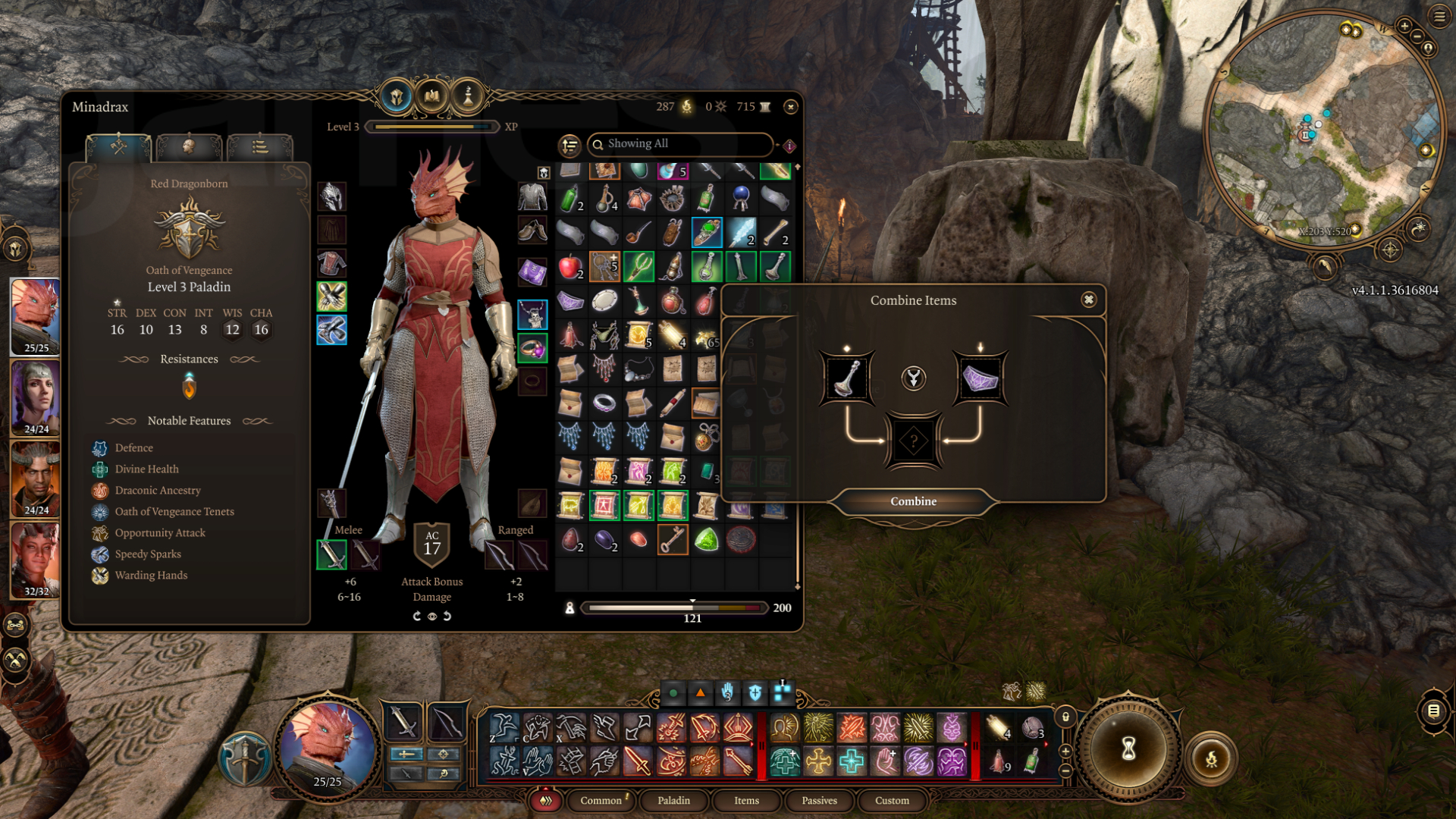
The final variation of crafting gear is combining items, which is very context specific and done from your inventory, most usually when dyeing gear. Any item you can combine has a "Combine" option, whereupon you'll then be shown an empty space to place an item.
If they're compatible, you'll be allowed to combine them to create something new, like dyed gear! There are also times where you'll find hilts, blades and various other pieces that combine to make something new, though there's always a specific combination and no alternatives - i.e., you can't mix and match pieces.
© GamesRadar+. Not to be reproduced without permission

Joel Franey is a writer, journalist, podcaster and raconteur with a Masters from Sussex University, none of which has actually equipped him for anything in real life. As a result he chooses to spend most of his time playing video games, reading old books and ingesting chemically-risky levels of caffeine. He is a firm believer that the vast majority of games would be improved by adding a grappling hook, and if they already have one, they should probably add another just to be safe. You can find old work of his at USgamer, Gfinity, Eurogamer and more besides.
You must confirm your public display name before commenting
Please logout and then login again, you will then be prompted to enter your display name.


